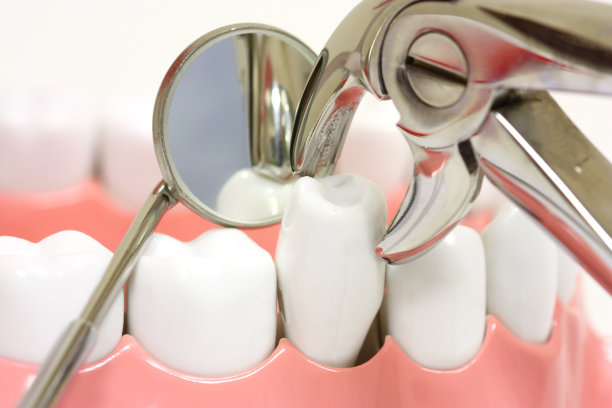Summary: Periodontal disease is a prevalent but often overlooked condition that significantly impacts both oral health and overall well-being in adults. This article explores the nature of periodontal disease, its causes, and the various effects it has on health beyond the mouth. It also discusses effective treatment approaches, ranging from prevention to advanced surgical interventions. A thorough understanding of this disease can lead to better outcomes and improved quality of life for those affected. The importance of early diagnosis, lifestyle changes, and professional dental care can not be overstated in combating periodontal disease.
1. Understanding Periodontal Disease and Its Causes

Periodontal disease, commonly known as gum disease, is an inflammatory condition that affects the tissues surrounding the teeth. It begins with gingivitis, where gums become red, swollen, and bleed easily. If left untreated, it can progress into periodontitis, resulting in tooth loss and damage to the bone supporting the teeth. Understanding the causes of periodontal disease is crucial for effective prevention and treatment.
The primary cause of periodontal disease is dental plaque, a sticky film of bacteria that forms on teeth. Poor oral hygiene can lead to plaque buildup, which, if not removed, hardens into tartar. Tartar is difficult to remove without professional dental assistance and serves as a breeding ground for bacteria, worsening gum health. Other factors contributing to periodontal disease include smoking, hormonal changes, diabetes, and certain medications that affect saliva production.
Genetic predispositions also play a significant role in an individuals susceptibility to periodontal disease. Some individuals may have a genetic makeup that makes them more prone to severe gum issues, regardless of their oral hygiene practices. Understanding these risk factors can help in tailoring preventive measures and treatment approaches effectively.
2. Impact on Oral Health
The impact of periodontal disease on oral health is multifaceted. As the disease progresses, it not only leads to gum recession but also causes pockets to form between teeth and gums, which can trap food particles and bacteria. These pockets create a cyclical problem where progressive damage occurs, further leading to tooth mobility, pain, and potential loss.
Additionally, periodontal disease has a notable impact on aesthetics. People suffering from more severe forms may experience gagging or discomfort, which can affect their ability to chew properly. The resulting changes in oral structure can alter speech, making communication difficult and leading to social anxieties.
Moreover, the bacteria associated with periodontal disease can enter the bloodstream and affect other parts of the body. This systemic connection between oral and overall health emphasizes the importance of maintaining good gum health to prevent complications that might arise in other organs.
3. Effects on Overall Well-being
The ramifications of periodontal disease reach beyond oral health, significantly affecting an individual’s overall well-being. Studies have linked periodontal disease to a variety of systemic conditions, including heart disease, stroke, and respiratory infections. The inflammation and bacteria associated with gum disease can exacerbate existing health issues.
Furthermore, chronic periodontal disease can lead to psychological effects. Individuals may experience embarrassment over their condition, leading to lower self-esteem, anxiety, and depression. The discomfort or pain associated with periodontal disease can also affect ones ability to enjoy food, impacting nutritional intake and quality of life.
Additionally, periodontal disease has been shown to worsen diabetic control and is associated with pregnancy complications. For women, the hormonal changes during pregnancy can aggravate periodontal disease, risking both maternal and fetal health. Its clear that addressing periodontal disease is integral to promoting holistic health.
4. Effective Treatment Approaches
Effective treatment for periodontal disease varies based on its severity. The first line of defense is often a thorough professional cleaning, known as scaling and root planing. This procedure removes plaque and tartar from below the gum line, reducing inflammation and promoting healing.
For more advanced cases, surgical options such as flap surgery or bone grafting may be necessary. Flap surgery can help reduce the size of pockets around teeth, while bone grafting promotes new bone growth to strengthen the foundation of teeth. Patients may also be prescribed antibiotics to kill the bacteria causing the infection.
Beyond professional care, maintaining good oral hygiene at home is crucial. Daily brushing and flossing, along with regular dental check-ups, can effectively prevent the onset and progression of periodontal disease. Lifestyle changes, including quitting smoking and managing underlying health conditions like diabetes, also play an essential role in treatment efficacy.
Summary:
In conclusion, understanding periodontal disease is vital for effective management and overall health enhancement. By recognizing the effects it has on oral health and general well-being, individuals can take proactive steps to prevent and treat it. The integration of professional dental care with personal hygiene practices and lifestyle changes can lead to positive health outcomes.
This article is compiled by Vickong Dental and the content is for reference only
Vickong Dental
Vickong Dental is a large medical group established in Hong Kong in 2008 by professors from well-known medical universities in Guangdong and Hong Kong, as well as medical doctors from key national '985' universities (including Master's supervisors and senior professors). The chain of branches brings together expert dentists with PhDs and Master's degrees from Hong Kong and Mainland China, committed to providing high-quality dental treatment.
"Vickong Dental Practices the University Motto of 'Healing and Serving Society,' with a Stable Operation for Sixteen Years. It Has Been honored with Hong Kong Enterprise Leaders's Choice,' and is a Global Trusted Implant Center for the Nobel Implant System. Recommended by Hong Kong Metro Broadcast and Guangdong Television, it Serves Customers from Over Thirty Countries and Regions, Gaining the Trust and Favor of Citizens from the Guangdong-Hong Kong-Macau Greater Bay Area and Surrounding Cities.

Thousands of customers' unanimous praise
The most recognized and highly recommended dental service by customers in the Guangdong-Hong Kong-Macau Greater Bay Area
We Ensure You Receive Detailed Care and Attention Here
Hong Kong standards, Shenzhen prices, Your Trusted English-speaking dentists

Vickong Dental Medical-Grade Instrument Disinfection Process
Vickong Dental Medical-Grade Instrument Disinfection Process

Vickong Dental Chain: A Warm and Comfortable Environment for Treatment






Appointment Hours

Q&A
Why choose Vickong Dental?
Vickong Dental practices the university motto 「Medicine to Benefit Society」, with each branch bringing together highly qualified dentists with doctoral and master’s degrees from Hong Kong and the Mainland, and has maintained seventeen years of steady operation。Recipient of 「2024 Hong Kong Enterprise Leaders Brand」, 「2025 Hong Kong Enterprise Leaders Brand」, a Nobel Biocare Global Trusted Implant Center, and a brand recommended by Metro Radio Hong Kong and Guangdong TV。
To date, we have served customers from more than thirty countries and regions,earning exceptionally high word-of-mouth recognition and trusted recommendations from residents across the Guangdong-Hong Kong-Macao Greater Bay Area and surrounding cities
We have eight major branches in Zhuhai、Shenzhen,and a consultation and service assurance center in Hong Kong,so you can book a free consultation at any time for any questions,which is very reassuring.
If I do not accept the quotation after the CT scan, will I be charged??
No! As long as the actual treatment has not started, you will not be charged any fees.
Will there be any additional charges during the treatment process?
No, there won’t be any additional charges. Before treatment begins, we will clearly explain the treatment plan and its corresponding fees. Only after the patient agrees and signs the consent form will we proceed with the dental service.
Can I pay in Hong Kong dollars?
Yes. Vickong Dental accepts payment in Hong Kong dollars. The amount will be converted based on the exchange rate of the day, and the applicable rate will be clearly communicated to you in advance.
Can I reschedule my appointment at any time?
Yes. Please contact us via **WeChat** or **WhatsApp** as early as possible, providing your original appointment time and details, along with your preferred new date and time slot for rescheduling.













